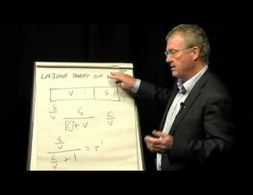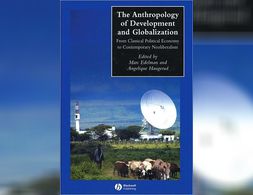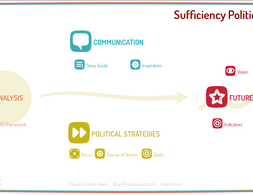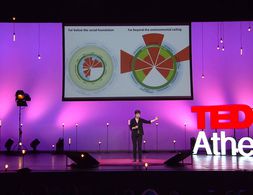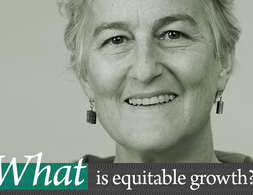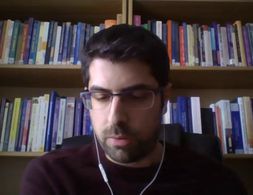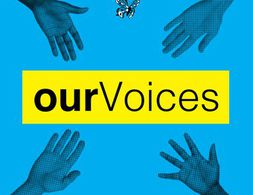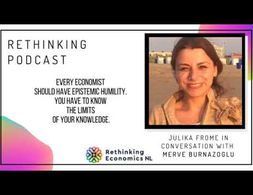✕
663 results
Whiteness is a process of learning: one is not born white, but becomes one. In this rich and compelling volume, Sriprakash, Rudolph and Gerrard offer a meticulous (and eye-opening) reading of educational experiences and structures that endorse systemic racism.
Dani Rodrik reflects in this book on important questions about how economics works and what might be wrong with it. He points out flaws and weakness of the discipline, but also argues that certain criticisms which have brought forward against are without merit. His central point is that there is not just one economic model, but a variety of them and it is important to apply judgment when selecting the most suitable one for a particular situation.
The course approaches migration as a constant phenomenon in human history and examines its main supporting theories It illustrates theories about people s individual decisions to migrate and also the factors of migration as a structural feature of our societies It explains the role social networks and institutions play in …
This book is intended as a textbook for a course in behavioural economics for advanced undergraduate and graduate students who have already learned basic economics. The book will also be useful for introducing behavioural economics to researchers. Unlike some general audience books that discuss behavioural economics, this book does not take the position of negating traditional economics completely.
What causes a recession? Told by economic historian John S. Gordon and visualized by a dancing performance, this short film focuses on emotions that are linked to recessions and recovery: fear and confidence.
A concise introduction to Marx's Labour Theory of Value, the three ratios and the falling rate of profit hypothesis.
In this TedTalk Dan O Neil explains why GDP and infinite growth are concepts that we should leave behind and which other perspectives have been developed Degrowth post growth well being or steady state economy The goal is to rethink a new paradigm that puts society and the environment at …
In both economics textbooks and public perceptions central banks are a fact of life. On the wall of my A-level economics classroom there was the Will Rogers quote “there have been three great inventions since the beginning of time: fire, the wheel, and central banking”, summarising how many economists view the institution. There is a widespread belief that there is something different about money which calls for a central authority to manage its operation, a view shared even by staunch free marketeers such as Milton Friedman. This belief is not without justification, since money underpins every transaction in a way that apples do not, but we should always be careful not to take existing institutions for granted and central banking is no exception. In this post I will look at the idea of private or free banking, where banks compete (and cooperate) to issue their own currency.
Exploring Economics, an open-access e-learning platform, giving you the opportunity to discover & study a variety of economic theories, topics, and methods.
Devine begins with an analysis of the theory and practice of capitalist planning, central planning and 'market socialism'. He argues that, while market socialism is currently favoured by many economists who reject both capitalism and the command planning of the Soviet model, it cannot fulfil the promises held out for it.
In this book, the author critically examines a number of socialist proposals that have been put forward since the end of the Cold War. It is shown that although these proposals have many merits, their inability effectively to incorporate the benefits of information technology into their models has limited their ability to solve the problem of socialist construction. The final section of the book proposes an entirely new model of socialist development, based on a "needs profile" that makes it possible to convert the needs of large numbers of people into data that can be used as a guide for resource allocation. This analysis makes it possible to rethink and carefully specify the conditions necessary for the abolition of capital and consequently the requirements for socialist revolution and, ultimately, communist society.
Leigh Phillips and Michal Rozworski examine the apparent contradiction between the demise of real-existing socialism and the rise of large corporations engaging in planning every day, making a strong argument that these planning efforts should be transformed to now fulfil the needs of the people.
The Anthropology of Development and Globalization is a collection of readings that provides an unprecedented overview of this field that ranges from the field?s classical origins to today?s debates about the ?magic? of the free market.
The age of the contemplative economist-scholar—at home equally in classical languages, economic history, the history of ideas, and mathematical theory—has passed. The history of economics as a subdiscipline has lost touch with the mainstream study of economics. InThe Future of the History of Economics, internationally known scholars from ten countries provide a comparative assessment of the subdiscipline.
Maria Nikolaidi on how Minsky’s theory has been modelled over past decades and how one can use these models in order to analyse contemporary issues such as financial fragility and financial instability caused by climate change.
The Sufficiency Policy Map is an online tool for initiatives, political actors, organisations and individuals. It provides recommendations, strategies and communication tools for realizing projects and policy around the topic sufficiency. Sufficiency projects have the aim to reduce one's own ecological footprint.
This talk was given at a local TEDx event, produced independently of the TED Conferences. Economic theory is centuries out of date and that's a disaster for ...
What is “equitable growth” and how do we measure it? A better understanding of equitable growth—and how to measure it—can improve our understanding, inform decisions and lead to better outcomes for all.
How does fiscal policy work and which dimensions have to be considered? In this short text, you can learn about the difficulty of juggling different dimensions and which optimal rules exist at the micro and macro level.
Planet Money and The Indicator aim to explain current economic events in an easy, fun and accessible manner.
Banner and Pastor debunk granted assumptions of the neoclassical theory, such as self-interested human behavior, the necessity of inequality and growth, to pull the threads between the new possible foundations of our society, "prosperity, security and community".
This is webinar series organized by the SOAS Open Economic Forum and the SOAS Economics Department with speakers from the same department as well as other academic figures.
In this podcast, Laura Basu focuses on how capitalist markets and nation-states perpetuate structural racism.
Are there any limits to government spending? In times of war, particularly? And what about the aftermath of such special times when treasuries seemingly feel unshackled from any rules? And are those times really any special? That is what this paper is about.
Exploring Economics, an open-source e-learning platform, giving you the opportunity to discover & study a variety of economic theories, topics, and methods.
This text summarizes the content of the 2018 Nobel Prize winner W. Nordhaus. It is extended by some critical perspectives on this topic. The short dossier gives an overview of the most important texts we have read in the climate economics reading group.
This article examines the spread of financialization in Germany before the financial crisis. It provides an up-to date overview on the literature on financialization and reviews which of the phenomena typically associated with financialization have emerged in Germany. In particular, the article aims to clarify how the prevailing institutional structure and its changes had contributed to or had countervailed the spread of financialization and how it had shaped the specific German variant of financialization. For this end, it combines the rich literature on Germany's institutional structure with the more macroeconomic oriented literature on financializaton. With the combination of those different perspectives the article sheds light on the reasons for the spread of financialization and the specific forms it has taken in Germany.
Rethinking Economics NL explores every month together with a new host the field of economics from a different perspective.
Industrial policy has been a central part of policy prescription by many heterodox schools arguably since mercantilism, but the theories behind it and types of policy advocated for have evolved over time. Recently some neoclassical economists have shown renewed interest in it, but is this mainstream acceptance a step back or a step forward from earlier heterodox ideas?
The background for the present elaboration is twofold firstly the ongoing debate about whether the Marxian theory of value has been damaged or even destroyed by the alleged impossibility of solving the transformation problem and secondly the fact that almost all of the later economic manuscripts of Marx are now …
In this paper the main developments in post-Keynesian macroeconomics since the mid- 1990s will be reviewed. For this purpose the main differences between heterodox economics in general, including post-Keynesian economics, and orthodox economics will be reiterated and an overview over the strands of post-Keynesian economics, their commonalities and developments since the 1930s will be outlined. This will provide the grounds for touching upon three important areas of development and progress of post-Keynesian macroeconomics since the mid-1990s: first, the integration of distribution issues and distributional conflict into short- and long-run macroeconomics, both in theoretical and in empirical/applied works; second, the integrated analysis of money, finance and macroeconomics and its application to changing institutional and historical circumstances, like the process of financialisation; and third, the development of full-blown macroeconomic models, providing alternatives to the mainstream 'New Consensus Model' (NCM), and allowing to derive a full macroeconomic policy mix as a more convincing alternative to the one implied and proposed by the mainstream NCM, which has desperately failed in the face of the recent crises.
This collection of videos offers a short introduction to ecological economics and its main differences with respect to environmental economics.
We use cookies on our website. Click on Accept to help us to make Exploring Economics constantly better!






